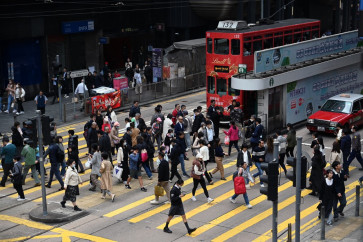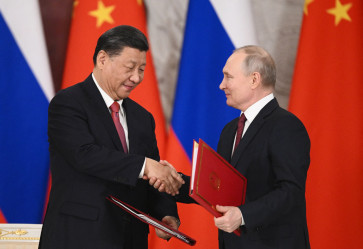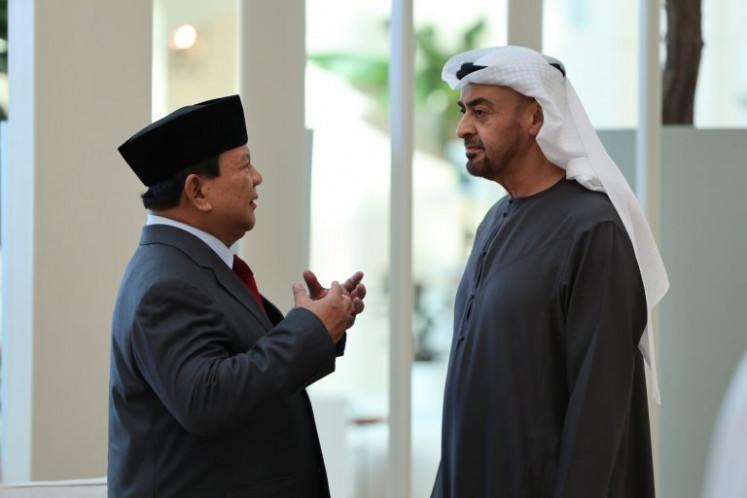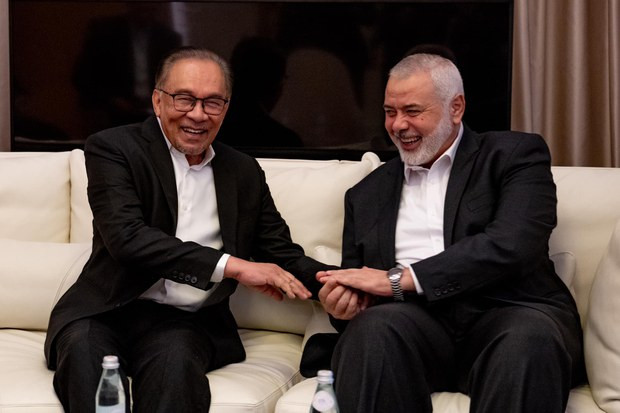Special autonomy for Papua: The trickery of Jakarta's policy
The new special autonomy law reveals Jakarta's inability to grasp the sociopolitical and cultural context of the Papuan people and their customary lands; instead it is lazily breathing new life into old, racist and specifically Indonesian tropes.
Change Size
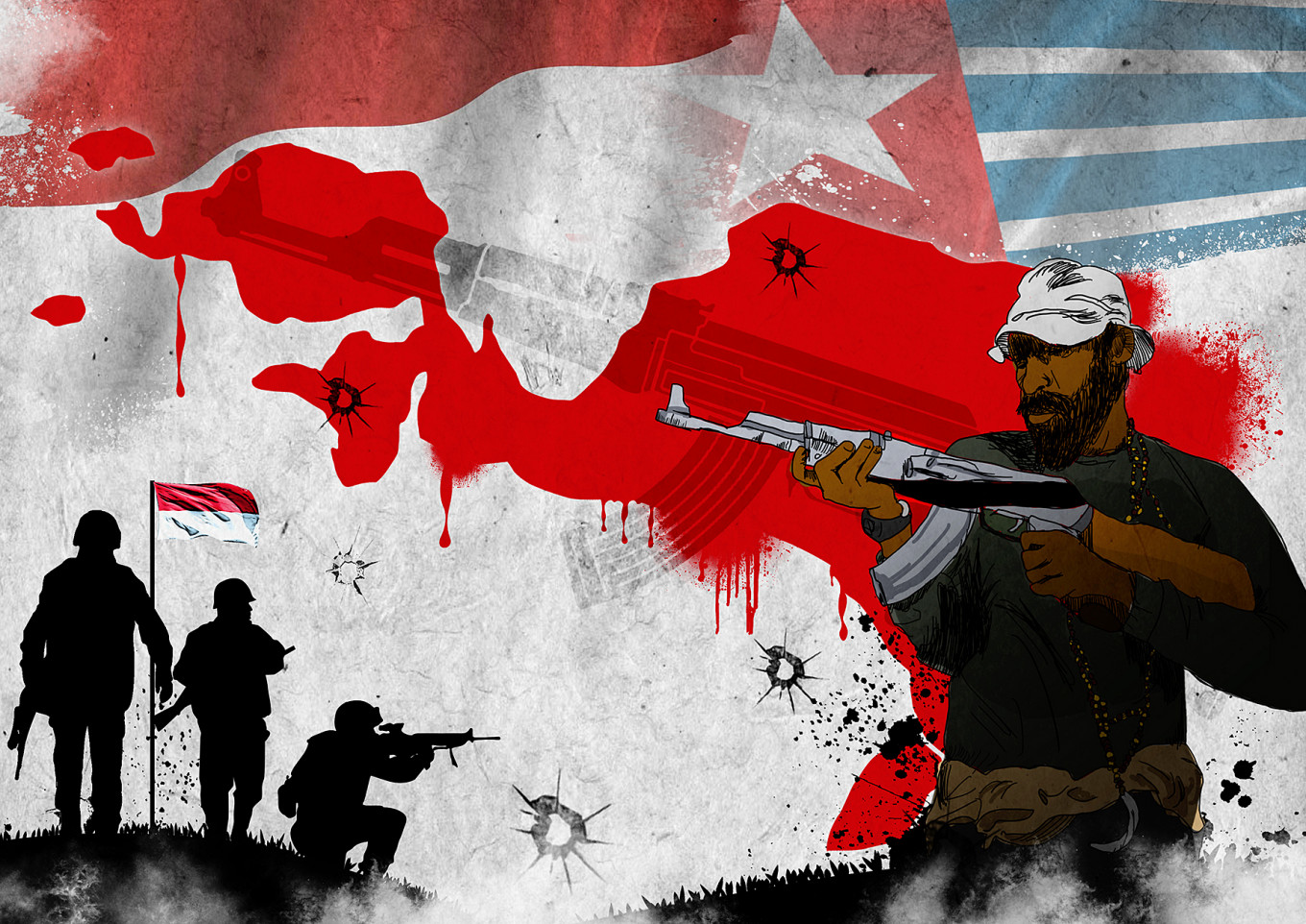
F
or the last 20 years the 2001 Papua Special Autonomy Law has provided a cover for the expansion of a form of "guided democracy''. With the House of Representatives' unanimous decision to pass the revision of the law on July 15, the last vestige of “local autonomy” has now been removed.
President Joko "Jokowi'' Widodo’s government reportedly made a swift decision, accepting the recommendations of the Home Ministry and a special state-sanctioned committee's amendment to the law, causing outrage among indigenous Papuans.
This is part of a revisionist history that overlooks the structural violence, systemic racism and unjust laws that abhorrently distort any notion of democracy in Papua.
These changes were instituted without consent of the Papuans. Article 77 of the 2001 Papua Special Autonomy Law stipulated that any changes to the legislation should be proposed by Papuans through their provincial legislatures and the Papuan People’s Assembly (MRP).
The failure to gain the approval of the Papuans only further widens the gulf of mistrust between Papua and Jakarta.
Under the new law, “special autonomy” has morphed into a policy to “Indonesianize” the land of Papua.
It confirms what has already been happening on the ground. In 2019, the third Regional Defense Command (Kogabwilhan III) was established by presidential decree as an Indonesian Military (TNI) development project to act as a deterrent against Papuan nationalism. Kogabwilhan III, which includes sea, land and air troops, has escalated the brutal military presence in Papua.
Internally displaced persons (IDPs), many of whom were forced to leave their village livelihoods to avoid TNI reprisals following the Nduga massacre in late 2018, starved in the jungle, or were shot dead a few meters from their village homes.
The central highlands regencies of Ilaga, Intan Jaya, Lanny Jaya, Nduga, Puncak and Pegunungan Bintang are notorious war zones that typify the conflict. It was in places like this that young Egiyanus Kogoya, commander of the local section of the West Papua National Liberation Army (TPNPB), took up arms to defend his people who were suffering brutal transgenerational trauma from the years of harsh military “security” operations.
Overall, the ongoing Papua foreign media blackout and the highly restricted access to human rights groups mask the severe shortcomings of the special autonomy package. In such circumstances the central government finds itself rushing to the easy option of quietly rolling over funding, reportedly President Jokowi’s preferred solution.
It demonstrates a lack of political will to adopt critical new ideas on land, governance, anti-discrimination measures, human rights and power sharing.
It reveals Jakarta's inability to grasp the sociopolitical and cultural context of the Papuan people and their customary lands; instead it is lazily breathing new life into old, racist and specifically Indonesian tropes. These tropes are regarded as a "coffin" by the Papuan people.
The trickery of Indonesia's special autonomy is not the sole example of deliberate ignorance.
Consider the recent arrest of Victor Yeimo, the international spokesperson for the West Papua National Committee and the Papuan People's Petition. A secretive, elite unit taking part in Operation Nemangkawi, a joint military and police operation, detained the 39-year-old without a warrant in early May and charged him with treason and many other crimes while his actions were clearly legitimate under Indonesian law.
Yeimo is undoubtedly being used as the scapegoat for Jakarta’s political maneuvering.
His arrest came just weeks before the authorities officially endorsed the new Special Autonomy Law and after the government declared Papuan independence fighters and members of the Free Papua Movement (OPM) terrorists.
Jakarta has elevated its public diplomacy to gain traction with foreign donors and investors — concurrently declaring war against so-called Papuan terrorists while engaging in military operations against civilians which could be regarded as state terrorism.
Coordinating Political, Legal and Security Affairs Minister Mahfud MD said the new label was aimed at those pushing the idea of separatism. Little did Mahfud acknowledge the region as the site of some of the most chilling atrocities of recent years.
Prominent among these was the killing of Pastor Yeremia Zanambani in September 2020 in Intan Jaya, which was allegedly committed by TNI personnel. He was murdered while attending his garden and his body showed signs of torture. Unsurprisingly, the TNI denied any involvement in the killing, accusing the TPNB-OPM of perpetrating the crime instead.
Following the outcry from church leaders, a government-sanctioned fact-finding team found evidence a month later that TNI soldiers were involved in the death of Yeremiah. Mahfud told the media the government would follow up on the findings. However, the case remains unsolved, and the perpetrators have not been held accountable.
Through the selective lens of Mahfud and other government officials, this atrocity is no big deal. In other words, Papuan lives do not matter.
Until genuine negotiations over Papua's political status are undertaken, as they successfully were in East Timor and Aceh, foreign governments and donors should reconsider accepting Jakarta’s new special autonomy policy. Nor should they perform behind the shadow of the wayang, knowing after almost 20 years of implementation the autonomy package has abjectly failed — or the violence will only grow and Indonesia's international image will become further tarnished by its inhumane treatment of Papua.
***
The writer is a Papuan musician and activist, and has worked as a fixer and programmer in Australia for the past 10 years. He graduated in diplomacy studies from the Australian National University, and is cofounder of Rize of the Morning Star, a musical and cultural movement. He also consults for the Pacific Mission of the United Liberation Movement for West Papua.

